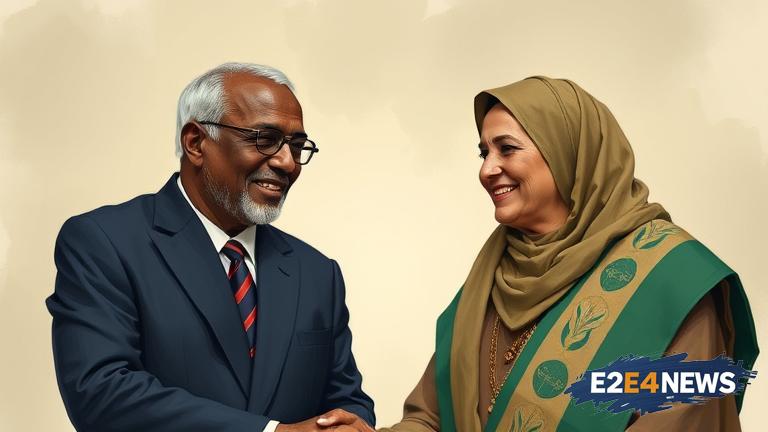The Government of Kenya and the Ismaili Imamat have signed a Memorandum of Understanding (MOU) to collaborate on climate action, health, and education initiatives. This partnership aims to address some of the most pressing challenges facing Kenya and the global community. The MOU was signed by representatives of the Kenyan government and the Ismaili Imamat, a global organization founded by His Highness the Aga Khan. The agreement outlines a framework for cooperation in areas such as climate change mitigation and adaptation, healthcare, and education. The partnership will focus on implementing sustainable solutions to reduce Kenya’s carbon footprint and promote renewable energy sources. Additionally, the collaboration will work to improve healthcare outcomes by increasing access to quality medical services, particularly in rural and underserved areas. The education sector will also benefit from the partnership, with a focus on improving the quality of education and increasing access to educational opportunities for marginalized communities. The Ismaili Imamat has a long history of engagement in Kenya, with a presence in the country dating back to the early 20th century. The organization has been involved in various development initiatives in Kenya, including the establishment of schools, hospitals, and other social and economic institutions. The MOU signing ceremony was attended by high-ranking officials from the Kenyan government and the Ismaili Imamat, including the Minister of Environment and Climate Change and the Diplomatic Representative of the Ismaili Imamat. The ceremony marked an important milestone in the partnership between the two entities and highlighted their shared commitment to addressing the challenges facing Kenya and the global community. The partnership is expected to have a positive impact on the lives of Kenyans, particularly in rural and underserved areas. The collaboration will also contribute to the achievement of the United Nations’ Sustainable Development Goals (SDGs), including SDG 13 on climate action, SDG 3 on good health and well-being, and SDG 4 on quality education. The Ismaili Imamat has a strong track record of implementing successful development projects in Kenya and around the world. The organization’s approach to development is centered on empowering local communities and promoting self-sufficiency. The partnership with the Kenyan government is expected to build on this approach, with a focus on community-led development initiatives. The MOU signing ceremony was widely covered in the Kenyan media, with many outlets highlighting the significance of the partnership and its potential impact on the country. The partnership has been welcomed by civil society organizations and other stakeholders, who see it as an important step towards addressing the challenges facing Kenya. The collaboration is expected to be a long-term partnership, with a focus on achieving sustainable and lasting impact. The Ismaili Imamat has committed to providing significant resources and expertise to support the partnership, including funding, technical assistance, and capacity building. The Kenyan government has also committed to supporting the partnership, including through the provision of policy and regulatory support. The partnership is expected to be a model for other development initiatives in Kenya and around the world, demonstrating the potential for collaborative and community-led development approaches to drive positive change. Overall, the partnership between the Government of Kenya and the Ismaili Imamat has the potential to make a significant and lasting impact on the lives of Kenyans and contribute to the achievement of the SDGs.
